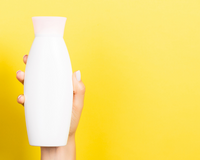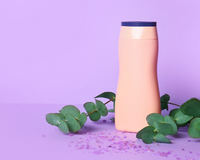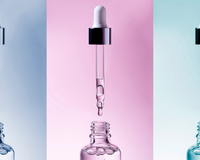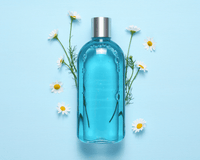Black hair care products cancer, certain chemicals in hair color and straighteners have been linked to cancer in animals in the past. However, the results of other human investigations on the link between hair dyes and straighteners and cancer have been mixed. This big, prospective study adds to the evidence that there is a correlation.
Researchers looked examined medical records and lifestyle questionnaires from 46,709 women between the ages of 35 and 74 as part of ongoing research. Women were asked about the hair dyes and straighteners they use. The current research included 9% African American women, whereas previous studies on hair color and cancer risk included predominantly white women.
Researchers discovered that women who dyed their hair permanently or used chemical straighteners had a greater risk of breast cancer. After an eight-year follow-up, White discovered that permanent hair dye usage was linked to a 7% greater risk of breast cancer in white women, "while the risk was roughly 45 percent in black women."
Black women who colored their hair every one or two months were at a significantly greater risk. Researchers are unsure which components in the items are potentially harmful. The research did not examine the exact chemicals in the items that women were using; instead, it looked at whether they had used the product and if they had acquired breast cancer as a result of using it.
Black Hair Care Products Cancer: Can Hair Care Products Cause Cancer?
Since all of the women in the Sister Study had a sister who had breast cancer, they were already at high risk for breast cancer. This family history put them at higher risk, but it has no bearing on the results of this study because all of the women in the study had a similar family history, but only a few of them used hair color and straighteners.
Breast cancer incidence is high for all women in the United States, according to the researchers, and appears to be growing among non-Hispanic black women, who are also more likely to be diagnosed with more aggressive forms of the illness and to die from it. According to studies, hair products include over 5,000 chemicals, including those with mutagenic and endocrine-disrupting qualities, such as aromatic amines, which might increase cancer risk.
When hair comes to chemical straighteners, there was no difference in danger across races. Hair straighteners were found to increase the risk of breast cancer by 30% in both black and white women compared to those who did not use them. Black women, on the other hand, are more likely to use them, with around 75% of black women in the research saying they straighten their hair.
How Do Chemicals Cause Cancer?
One of the major risks with chemical straighteners is formaldehyde, which is a recognized carcinogen. Brazilian keratin treatments first appeared on the market in the early 2000s, soon before the research began. This new technique, known as a Brazilian blowout, involves formaldehyde, which did not use in previous hair straightening treatments. The findings of the study must-see in context. This is a pretty flimsy indication that these items are causing cancer in the general population.
These oxidative (permanent) hair dyes create long-term chemical alterations in the hair shaft. Because the color changes endure until the hair replaced by new growth, they are the most common forms of hair dyes. Because of some of the components, these colors are commonly refer to as coal-tar dyes. Aromatic amines and phenols are colorless compounds find in them. These compounds undergo chemical reactions in the presence of hydrogen peroxide, resulting in dyes. More of these coloring chemicals used in darker hair colors.
Some hair dye components have proven to cause cancer in experimental animals, most commonly when the animals feed substantial doses of the colors over a lengthy period of time. Although some dye applied to an animal's skin absorbs into the circulation, most studies have shown no relationship between skin application and the risk of cancer.
Should You Limit Your Exposure To Hair Care Products?
It's unclear how much, if at all, personal hair coloring usage increases cancer risk. The majority of studies to yet have not established a substantial correlation. Although further research need to further elucidate this problem.
There is no particular medical advice for present or previous hair dye users, except general guidelines. Smoking is a proven risk factor for bladder cancer and some forms of leukemia. Therefore stopping smoking, whether or not you use hair dyes, can improve your health.
For various reasons, some people may desire to avoid or minimize their exposure to hair colors. Certain of the substances in hair colors, for example, might trigger severe allergic responses in some people. Some people may have hair loss as a result of using hair colors. Some experts advise pregnant women to avoid getting their hair colors. Although there isn't enough information on hair dye usage during pregnancy to know for sure if it's an issue. Physicians frequently advise it simply to be safe. The FDA offers some advice for anyone who wants to color their hair but concern about safety. Follow the recommendations on the container. All "Caution" and "Warning" messages should take seriously.
Breast Cancer Risk Percentage According To The Ethnicity
The authors gathered sociodemographic data. For instance, family and personal health histories, prenatal exposures, reproductive history, and hormone usage, that potentially impact cancer risk. They also gathered information on hair products, cigarette usage, alcohol use, physical activity, and vitamin use, among other things. Characteristics of breast cancer also recognized. According to the study, the scientists looked at breast cancer risk in conjunction with the use of hair colors. Also, they look for deep conditioning creams containing cholesterol or placenta.
Dark brown or black hair colors connect to a 51 percent greater risk of breast cancer in African American patients. According to the study, darker hair color connect to a 72 percent greater incidence of estrogen receptor-positive breast cancer in this cohort. Chemical relaxers or straighteners link to a 74% higher incidence of breast cancer in Caucasians. There were modest changes in cancer risk based on estrogen receptor status, according to the authors.









